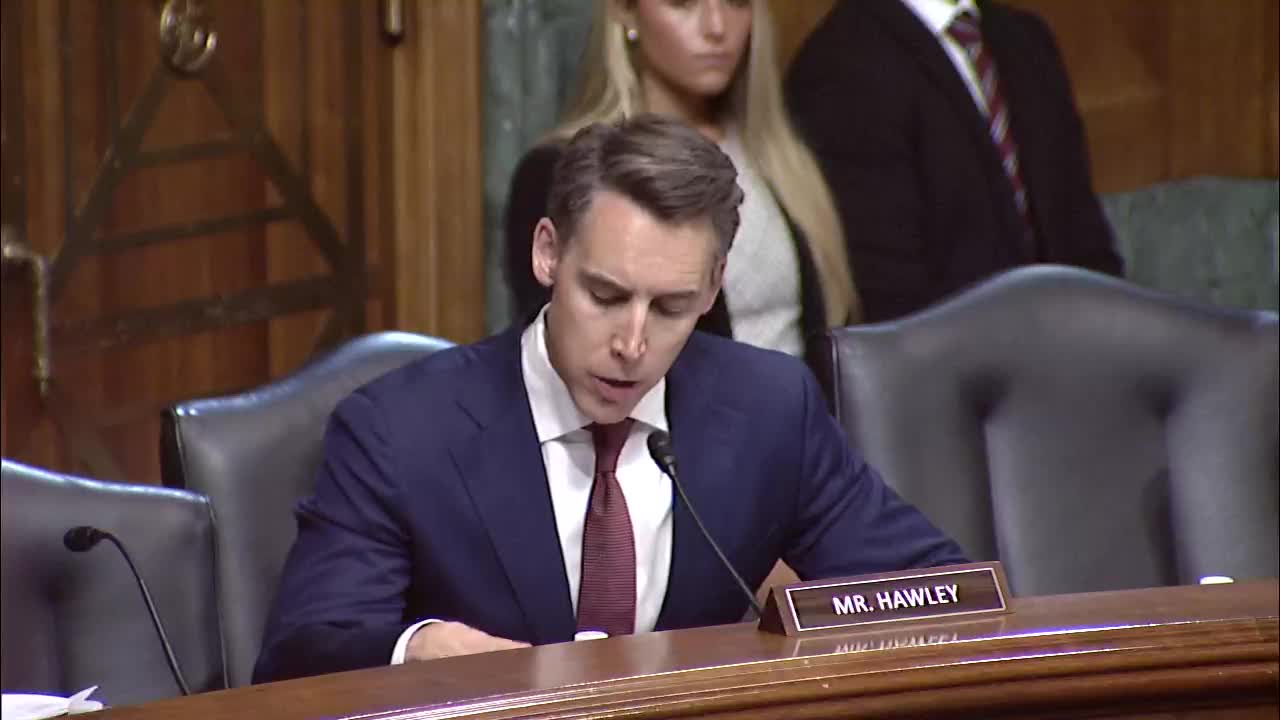Controversial church closures spark heated Senate debate
July 31, 2024 | Judiciary: Senate Committee, Standing Committees - House & Senate, Congressional Hearings Compilation, Legislative, Federal
This article was created by AI summarizing key points discussed. AI makes mistakes, so for full details and context, please refer to the video of the full meeting. Please report any errors so we can fix them. Report an error »

During a recent government meeting, significant discussions arose regarding the legal implications of executive orders during the COVID-19 pandemic, particularly concerning the closure of churches compared to essential retail businesses like Walmart and Lowe's. The dialogue centered around the actions of the former solicitor general, who defended a state executive order that prohibited indoor gatherings of ten or more people, which included church services.
Senators questioned the rationale behind allowing large retail stores to remain open while churches were required to close or limit gatherings to outdoor settings. The former solicitor general clarified that he was not the architect of the policy but was tasked with defending it in court. He emphasized that his role was to advocate for his client, the governor, during a time of public health crisis.
The senator pressed for clarity on whether it was a mistake to argue that churches should be closed while retail establishments remained open. The former solicitor general maintained that he had a duty to represent the state's interests and did not express regret over the arguments made, despite the court's later concerns about the implications for religious freedom.
The meeting also touched on other legal matters, including the former solicitor general's successful defense against a petition for the blanket release of inmates with serious medical conditions during the pandemic. He argued that such a release would pose an undue risk to public safety, a stance that was upheld by the North Carolina Supreme Court.
Additionally, the former solicitor general highlighted his extensive work in defending state laws aimed at protecting children from sexual offenders, including his involvement in significant legislation that allows victims of child sex abuse to seek civil action against their abusers.
Overall, the meeting underscored the complexities of balancing public health measures with constitutional rights during unprecedented times, as well as the ongoing legal challenges faced by government officials in navigating these issues.
Senators questioned the rationale behind allowing large retail stores to remain open while churches were required to close or limit gatherings to outdoor settings. The former solicitor general clarified that he was not the architect of the policy but was tasked with defending it in court. He emphasized that his role was to advocate for his client, the governor, during a time of public health crisis.
The senator pressed for clarity on whether it was a mistake to argue that churches should be closed while retail establishments remained open. The former solicitor general maintained that he had a duty to represent the state's interests and did not express regret over the arguments made, despite the court's later concerns about the implications for religious freedom.
The meeting also touched on other legal matters, including the former solicitor general's successful defense against a petition for the blanket release of inmates with serious medical conditions during the pandemic. He argued that such a release would pose an undue risk to public safety, a stance that was upheld by the North Carolina Supreme Court.
Additionally, the former solicitor general highlighted his extensive work in defending state laws aimed at protecting children from sexual offenders, including his involvement in significant legislation that allows victims of child sex abuse to seek civil action against their abusers.
Overall, the meeting underscored the complexities of balancing public health measures with constitutional rights during unprecedented times, as well as the ongoing legal challenges faced by government officials in navigating these issues.
View the Full Meeting & All Its Details
This article offers just a summary. Unlock complete video, transcripts, and insights as a Founder Member.
✓
Watch full, unedited meeting videos
✓
Search every word spoken in unlimited transcripts
✓
AI summaries & real-time alerts (all government levels)
✓
Permanent access to expanding government content
30-day money-back guarantee
